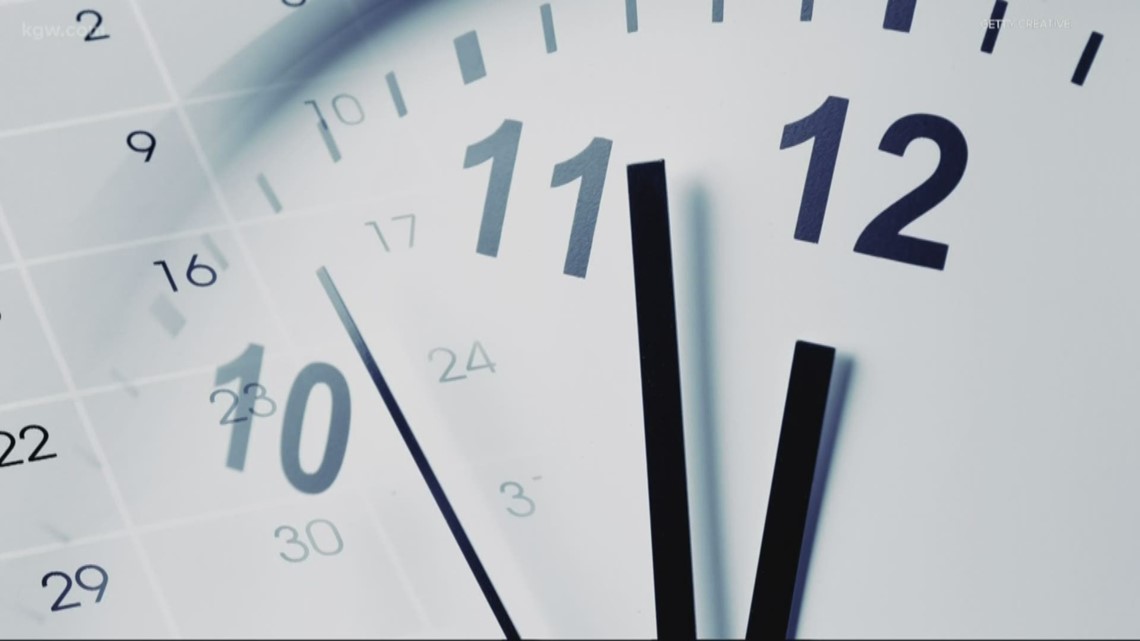Daylight saving time ends on Sunday, November 5. Here are some tips for keeping your mental health in check during the shorter days.
PORTLAND, Ore. Entering the winter season in the Pacific Northwest is usually bad news for fans of long days and sun. Many of us view shorter days as a nuisance, but for others, it can lead to the winter blues or worse. These blues tend to be amplified when Daylight Saving Time ends on November 5th.
Daylight saving time has its own set of problems related to our health. The main thing is that our body is adapted to the day and its rhythm and we are very sensitive to this, said Dr. Paul Giger. When we have an event, like this weekend, everyone is going to lose an hour.
Dr. Giger is the Medical Director of Behavioral Health at Providence Health Plan. According to Dr. Giger, jet lag creates minor stress on our bodies, despite the initial extra hour of sleep.
Which sounds good and may be beneficial for some people, but the clock adjusts artificially, he said. This can lead to symptoms like irritability, mood issues, and trigger insomnia in people because their sleep cycle is simply disrupted.
In addition to insomnia, Dr. Giger mentions depression or seasonal affective disorder (SAD). Research shows that if you’ve had one episode of depression in your life, your chance of having another is about 50%. And then if you had two, it’s about 70%. And if you’ve had three episodes, it’s about 90%. It’s almost as if this could become a chronic problem.
RELATED: Where All 50 States Pledge to Make Daylight Saving Time Permanent
Dr. Giger’s tips for combating the effects of shorter days start with what he calls good sleep hygiene.
It basically means a set of behaviors that promote good sleep. So it would be like getting up at the same time every day and trying to go to bed at the same time as well. But getting up is the real most important thing. The best cure for sleep is a busy day, and if you have a busy 16-hour day, you’re more likely to sleep well. Avoid taking naps, as this can disrupt your sleep cycle,” said Dr. Giger. “Avoid caffeine after midday. Some people don’t do well if they exercise too late in the day, it can kind of activate them and wake them up. So I would say one thing, as you think about heading into winter, is to educate yourself about sleep hygiene and really try to reduce that.
Despite all the precautions taken, you still experience the effects or symptoms of some kind of depression. Even when you notice a change in your friends or family members, Dr. Giger advises asking questions.
RELATED: No, the United States is not permanently ending DST after November 2023.
It can sometimes be difficult to self-diagnose because you are immersed in your own experience. But I think that’s the key thing, like, Wow, this is really impacting my job, my school, my ability to be a parent, maybe it’s time to ask someone for help ‘one, who has an outside point of view. We would certainly encourage people to do that, he said.
What I tell people to look for is that if there’s a really significant personality change or behavior change, people are often likely to withdraw. You know, you don’t hear from them. And when you do, you notice that they’re not quite themselves. I think it creates an opportunity to just ask: How are you? You don’t seem like yourself. This is a very good opening question. Everything is fine? Because when we think about clinical depression, we describe it as episodes, meaning that someone is actually in a state that is not normal for them. They have this condition that causes them to have obvious impairments in their lives.
If you’re pregnant and want to avoid taking medications, Dr. Giger says, using a light therapy lamp for 30 minutes of light therapy in the morning can help jumpstart your circadian rhythm.
If symptoms seem overwhelming or the impending time change causes anxiety, contact your primary care provider.
#turn #clock #November #mental #health
Image Source : www.kgw.com

